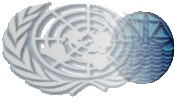© 2014-

United Nations Convention on the Law of the Sea (UNCLOS)
At the end of 1982 a significant agreement was drawn up by the United Nations covering the international use of the sea -
Although concerned primarily with mining and exploration rights of the sea-
Article 109 states:-
1. All States shall co-
2. For the purpose of this Convention 'unauthorised broadcasting' means the transmission of sound radio or television broadcasts from a ship or installation on the High Seas intended for reception by the general public contrary to international regulations, but excluding the transmission of distress calls.
3. Any person engaged in unauthorised broadcasting may be prosecuted before the courts of:-
(a) the Flag State of the ship;
(b) the State of registry of the installation;
(c) the State of which the person is a national;
(d) any State where the transmission can be received;
(e) any State where authorised radio communication is suffering interference.
4. On the High Seas a state having jurisdiction in accordance with paragraph 3 may, in conformity with Article 110, arrest any person or ship engaged in unauthorised broadcasting and seize the broadcasting apparatus.
(Article 110 sets out the procedure military or civilian personnel must follow when carrying out such a boarding and seizure)
The effect of this Article meant an end to the use of 'flags of convenience' as a legal means of maintaining an offshore radio ship in international waters. Under Article 109 any State which has ratified UNCLOS agrees that a ship registered with it which is used for unauthorised broadcasting purposes can be legally boarded in international waters by the authorities of other countries which have also ratified the agreement. It may also be possible for a country which has not ratified the agreement to take such action. UNCLOS therefore introduced a major change in international law and potentially had a direct and devastating impact on any unauthorised offshore broadcasting operations.
The UNCLOS agreement was opened for ratification by member States on 10th December 1982 and came into force on 16th November 1994, twelve months after the date of ratification by the 60th State (Guyana).
As of June 2016, 167 countries and the European Union have ratified in the Convention.
UNCLOS replaced the 'freedom of the seas' concept, dating from the 17th century where national rights were limited to a specified belt of water extending from a nation's coastlines, usually 3 nautical miles – i.e. the 3 limit.
A full copy of the Treaty is available at -


HOLD Noun -







Basement
Back to








27